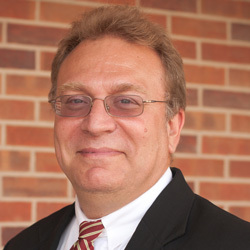Get started with Mizzou
ApplyGraduate certificate
We perceive leaders as individuals with surefire direction and a pioneering vision. While these aspects frame strategy and organizational objectives, managers, directors and department heads contend with varying degrees of conflict on a daily basis. Some strictly appear interpersonal — for example, a disagreement between two employees over processes, results or communication methods. Others are more complex, involving multiple individuals, requiring a policy rethink or even affecting community relations.
Conflicts, however, don’t always work themselves out, instead growing in scope and impacting team or organizational morale. Rather than avoiding conflict, understand how to take charge with the University of Missouri’s (Mizzou) online graduate certificate program in dispute resolution for non-lawyers.
This 12-credit-hour standalone or stackable program explores the multilayered nature of workplace conflicts and introduces theories you can readily apply in your current role. Through this knowledge, you learn to build genuine consensus, anticipate common sources of dissent and strengthen both your leadership and organizational culture.
Quick facts
Official name
Graduate Certificate in Dispute Resolution for Non-LawyersCampus
Program type
Graduate certificateAcademic home
School of LawDelivery mode
100% onlineAccreditation
Higher Learning Commission, American Bar AssociationCredit hours
12Estimated cost
$11,523.60*This cost is for illustrative purposes only. Your hours and costs will differ, depending on your transfer hours, your course choices and your academic progress. See more about tuition and financial aid.

Career prospects
Effective leaders evolve and adapt, and Mizzou’s dispute resolution program both fuels your progress and supplies you with the tools for pursuing change from within.
Ideal for business, non-profit, education and other higher-level professionals interested in tackling day-to-day and broader challenges, the applied curriculum benefits:
- Designers of dispute systems who strive to improve access to justice and expand dispute resolution options in the United States or abroad
- Managers and directors
- Mediators, facilitators or arbitrators
- Providers or administrators in dispute resolution organizations
- Trainers and consultants
About the online graduate certificate in dispute resolution for non-lawyers
Undermining, aggression and apathy quickly sour attitudes. These factors might contribute to arguments during meetings — or result in workers restricting communication, information and resources. As these behaviors persist, other employees become reluctant to interact with your team, results reach a standstill or regress, or turnover rates surge.
No matter your industry or role, successfully deploying conflict resolution tactics allows you to understand and actively listen to your employees and productively tackle the issue. This turnaround initially smooths over team interactions and encourages a more collaborative, empathetic environment where employees feel heard, supported and empowered. In the long term, this approach helps improve staff engagement and retention, enhance performance and prevent disagreements from proliferating.
As you strive to enrich and advance your leadership, the online graduate certificate program in dispute resolution for non-lawyers:
- Introduces various conceptual and analytic dispute resolution models rooted in legal studies, behavioral sciences, economics and other disciplines
- Equips you to analyze conflicts — including sources, power dynamics, ethics and policy — and determine the best alternative dispute resolution (ADR) models for addressing all parties’ concerns
- Explores common cognitive, affective and merit-based roadblocks that arise during negotiations
- Strengthens your practical mediation, negotiation, problem-solving and arbitration skills
- Connects professional responsibilities and dispute resolution to legal considerations
Program structure
The graduate certificate program in dispute resolution for non-lawyers is a 12-credit-hour, fully online program with no required campus visits. Students take three required courses and select one elective.
Courses are semester-based. Students typically take one to two classes per semester and finish the program in one to one-and-a-half years.
Based on their career goals, students can complete the graduate certificate in dispute resolution on its own or while fulfilling requirements for the master of business administration, master of public affairs or master of health administration program.
Course work covers
As you contemplate how you’ll grapple with various workplace disputes, the certificate program exposes you to:
- Dispute system design and managing multi-party conflicts
- Negotiation and mediation theories, tactics and public policy factors
- Sources and natures of conflicts and conditions leading to escalation
Delivery
100% onlineCalendar system
Semester-basedTypical program length
1 or 1.5 yearsTypical course load
1 or 2 classes each semesterAccreditation
The University of Missouri is accredited by the Higher Learning Commission, one of six regional institutional accreditors in the United States. The MU School of Law is fully accredited by the American Bar Association. The School of Law is a charter member of the Association of American Law Schools.
Faculty spotlight

Ladehoff is currently director of the Campus Mediation Service and is director of the LLM in dispute resolution program. He is a 1994 graduate of the UNL College of Law and litigated environmental cases for the U.S. Department of Justice. Prior to coming to Mizzou, he was executive director of the Central Mediation Center in Kearney, Nebraska.
